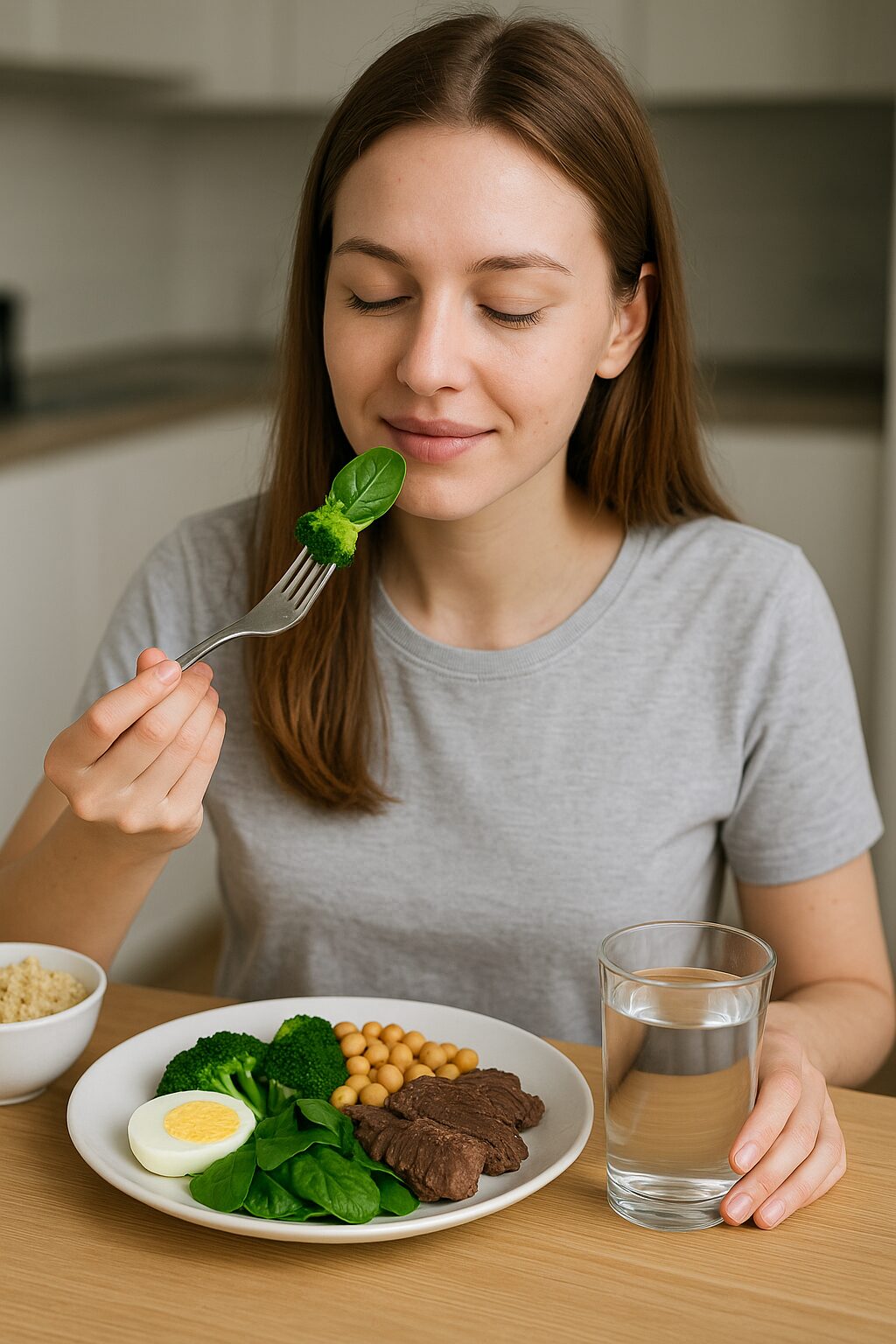Women’s health is closely influenced by hormonal changes such as menstruation, pregnancy, and menopause. Nutrition may play a key role in maintaining strength, immunity, and overall well-being. This article outlines foods that may support women’s health and those that are generally recommended to limit.

1. Iron-Rich Foods
Due to menstrual blood loss, women may be more prone to iron deficiency. Symptoms may include fatigue, dizziness, or difficulty concentrating. Foods such as lean red meat, eggs, spinach, and lentils provide iron. Eating vitamin C–rich fruits with these foods may improve absorption.
2. Calcium and Vitamin D
After menopause, bone density may decrease, increasing osteoporosis risk. Calcium-rich foods such as dairy products, tofu, and broccoli, together with vitamin D sources like salmon and fortified foods, may help maintain bone health. Sunlight exposure is also considered beneficial for vitamin D synthesis.
3. Antioxidant-Rich Foods
Oxidative stress can affect skin, immunity, and energy levels. Berries, tomatoes, carrots, spinach, and broccoli contain antioxidants such as vitamin C, vitamin E, beta-carotene, and polyphenols. Regular intake may support healthy aging and recovery from fatigue.
4. Healthy Fats
Not all fats are harmful. Unsaturated fats and omega-3 fatty acids found in salmon, walnuts, avocados, and olive oil may help support hormone balance, heart health, and skin condition. Moderation is still important, as excessive intake may contribute to weight gain.
5. Dietary Fiber
Constipation may be more common among women due to hormonal changes. Whole grains, oats, apples, and nuts provide fiber that may improve digestion and regulate blood sugar. Adequate hydration should accompany fiber intake for best results.
6. Foods to Limit
Highly processed foods, sugary snacks, and fried dishes may lead to blood sugar fluctuations, fatigue, or inflammation. High-sodium foods such as instant noodles and salty snacks may increase bloating and blood pressure. Limiting alcohol and caffeine may also support better sleep and hormonal balance.
🍀
A healthy diet for women may include iron, calcium, vitamin D, antioxidants, healthy fats, and fiber, while reducing sugar, sodium, trans fats, caffeine, and alcohol. Balanced nutrition and consistency may support overall well-being through different stages of life.
References and Further Reading
National Institutes of Health (NIH) – Women’s Health and Nutrition
World Health Organization (WHO) – Healthy Diet Guidelines
Harvard T.H. Chan School of Public Health – Nutrition and Women’s Health
※ This article is for general informational purposes only. Individual needs may vary depending on health conditions. Professional advice is generally recommended for personalized nutrition planning.
